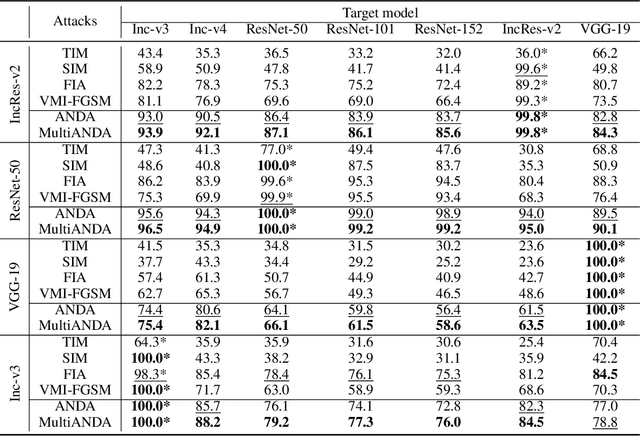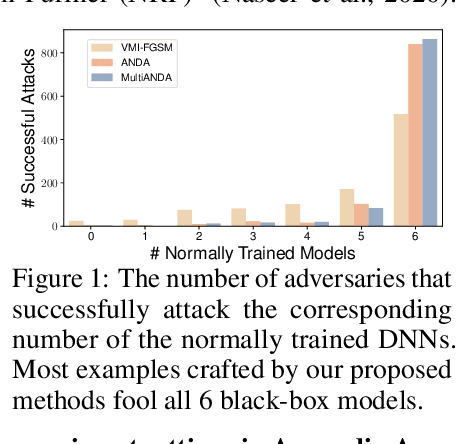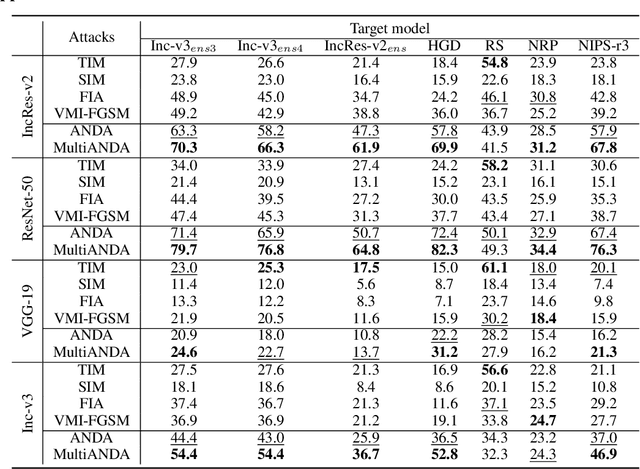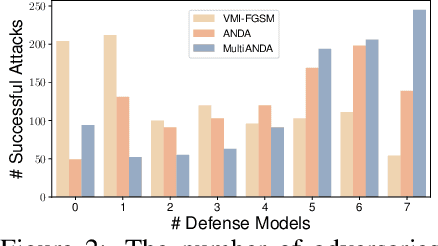Approximate better, Attack stronger: Adversarial Example Generation via Asymptotically Gaussian Mixture Distribution
Paper and Code
Sep 24, 2022



Strong adversarial examples are the keys to evaluating and enhancing the robustness of deep neural networks. The popular adversarial attack algorithms maximize the non-concave loss function using the gradient ascent. However, the performance of each attack is usually sensitive to, for instance, minor image transformations due to insufficient information (only one input example, few white-box source models and unknown defense strategies). Hence, the crafted adversarial examples are prone to overfit the source model, which limits their transferability to unidentified architectures. In this paper, we propose Multiple Asymptotically Normal Distribution Attacks (MultiANDA), a novel method that explicitly characterizes adversarial perturbations from a learned distribution. Specifically, we approximate the posterior distribution over the perturbations by taking advantage of the asymptotic normality property of stochastic gradient ascent (SGA), then apply the ensemble strategy on this procedure to estimate a Gaussian mixture model for a better exploration of the potential optimization space. Drawing perturbations from the learned distribution allow us to generate any number of adversarial examples for each input. The approximated posterior essentially describes the stationary distribution of SGA iterations, which captures the geometric information around the local optimum. Thus, the samples drawn from the distribution reliably maintain the transferability. Our proposed method outperforms nine state-of-the-art black-box attacks on deep learning models with or without defenses through extensive experiments on seven normally trained and seven defence models.
 Add to Chrome
Add to Chrome Add to Firefox
Add to Firefox Add to Edge
Add to Edge